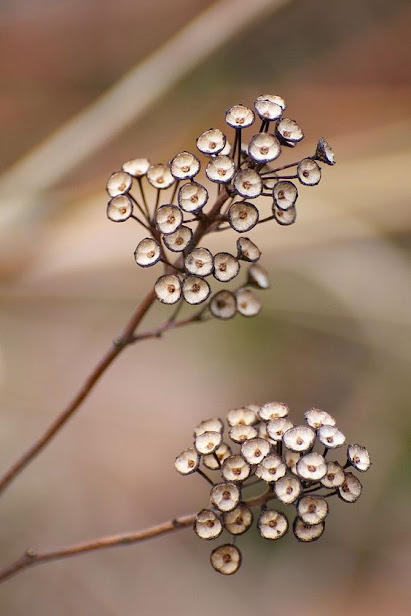Chapter – 45 – Viveka Choodamani - 441 – 450
Preceptor speaks “ The knowledge of ‘self’/Athman,
the all-pervasive Bhramam resides as a soul in the Jeeva is pure, changeless, unblemished, free from miseries and
sorrows, has neither beginning nor the end would remove the interest in worldly
matters and bondage, that has impermanent nature. The knowledge of ‘self’
provides Virakthi/renunciation and Vishyanivriththi/dislike of worldly matters,
as well. If the learned is drenched in the material matters, possession, fame, richness,
wealth, people, etc. even after achieving knowledge of Athman, then he/she
cannot be claimed as Jjani, has not understood the concept of Bhramathaththva. Ignorant
Jeeva chases after material well-being and sensual pleasure, a Jjani abandons
the interest in worldly matters and bondage and contemplate upon the Bhramam and
immerses in ‘Athmarathi’. The attributes/Vasana accumulated from the several
births in the Jeeva pulls towards the Samsara, even if the Yogi happened to be
in the crowd, it would not pollute his Chiththa/mind and intellect, because of
the constant remembrance of the all-pervasive Bhramam. The Yogi who has taken
pleasure in the ‘Athmarathi’/Athmavichara, with the knowledge of the
indestructible Purusha, Paramathma Parambhramam, and destructible Prakrithi, all
those material matters, wealth, richness, fame, possessions, people, money, etc.
seems worthless before his eyes, like the lustful Jeeva of Kamavikara/lovesick,
does not have the desire for mother. The Shruthi affirms that the fortunate
Jeeva who constantly contemplate upon the all-pervasive Bhramam, Akhanda
Sacchidhanandha Swaroopa Paramathma Parambhrmam, and perceives that Bhrmam as
Oneness-in-all, compelled to get attracted to the material matters due to the influence
of ‘Prarabhdhakarma’. This Prarabdhakarma provides fruit of the deeds in the
form of sorrow and happiness, the absence of Karma does not yield any results,
and the Viraktha remains in-active. The knowledge of ‘self’/Athman/soul, is the
perception of all-pervasive supreme Bhramam/Oneness-in-All, it would destroy the accumulated Vasanas/attributes in
the several births, like the person who woke up from the dream forgets the
visuals in the dream. In the same manner, the accumulated Vasana/Sanchitha
Karma disappears with the knowledge of Paramathma Parambhrmam resides as the soul
is the sole witness and causes the functioning of the mind, intellect, Ahamkara,
Panchaprana, Karma, and Gnanendhriyas, etc. All those visuals of Punya/piousness
and Papa/sin in the dream do not affect the Jagrathavastha or do not affect
the happiness or sorrow in the Jagrathavastha. Likewise, the Papa/sin and Punya/piousness
accumulated with the lack of knowledge of ‘self’ does not bring happiness or
sorrow in the Jeeva. The supreme Bhramam resides as a soul in the Jeeva is pure
as the sky, has no specific appearance or colors. The attributes/Vasanas
accumulated in the Jeeva and the performance of deeds with the influence of
Triguna/Sathvik, Rajasik, and Thamasik, brings the piousness and the sins. The
space inside the mud pot does not get affected by the ingredients/intoxicated
drink stored in it. The supreme Bhramam resides as a soul will not get affected
by the Upadhi/body, mind, intellect, etc. hence the Bhramam is pure, changeless,
free from afflictions, neither birth nor death. Prarabdha Karma/deeds performed
out of ignorance will not spare even a Yogi, therefore, Jeeva always bound by
the Karma, whether it is Punya or Papa, even after achieving the knowledge of ‘self’,
the Yogi has to undergo the fruit of Prarabdha Karma, like the arrow released
to hit the object cannot call back.”
Vijjatha Bhramathaththvasya Yadhapoorvam
Na Samsrithi: | Asthicheth Na Sa Vijjatha Bhramabhavo Bahirmukha: ||
Pracheena Vasana Vegadhasau Samsaratheethi
Cheth | Na Sadhekathva Vijjananmandhee
Bhavathi Vasana ||
Athyantha Kamukasyapi Vriththi: Kundathi Mathari | Thadhaiva Bhramani Jjathe Poornanandhe Maneeshina: ||
Nidhidhyasana Sheelasya Bahyaprathyaya Ekshyathe | Bhraveethi
Shruthirethasya Prarabdham
Phaladharshanath ||
Sukhadhyanubhavo Yavath Thavath Prarabdhamishyathe | Phalodhaya: Kriyapoorvo Nishkriyo Nahi
Kuthrachith ||
Aham Bhramethi Vijjanath Kalpakoti Shatharjjitham | Sanchitham Vilayam
Yathi Prabodhath Swapnakarmmavath ||
Yathkritham Swapnavelalyam Punyam Va Papamulbanam |Supthoththithasya Kim Thathsyath Swargaya Narakaya Va ||
Swa Sangamudhaseenam Parijjaya
Nabho Yadha | Na Shlishyathe Cha
Yath Kinchith Kadhachith Bhavikarmabhi: ||
Na Nabho Ghatayogena Suragandhena
Lipyathe | Thadhathmopadhi Yogena
Thadhdhamairnairva Lipyathe ||
Jjanodhayath Purarabdham Karmajjana Na Nashyathi | Adhathva Swaphalam Lakshyamudhdhishyoth Srishta
Banavath ||
